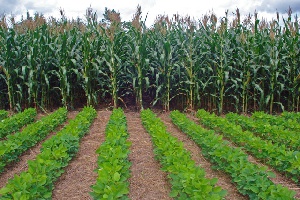Government has been given the go-ahead to arrange a US$52.5million loan from the International Fund for Agricultural Development (IFAD) to finance the Promoting Rural Opportunities, Sustainable Profits and Environmental Resilience (PROSPER) project.
The amount, made up of a blended loan of US$35.1million and a concessional loan of US$17.3 million, forms about 35.7 percent of the entire project cost estimated at US$147.20million.
It is understood that IFAD has committed an additional US$22.7million in funding under IFAD 12 to support the project’s implementation. The country’s ability to access this amount is expected to be triggered by the performance of the initial amount – US$52.5million.
The project’s commencement and performance will also trigger commitment from other development partners including Green Climate Funds (GCF) – in the region of US$25.4million.
Meanwhile, government is expected to provide a counterpart funding amount of US$22.7million – with the remaining US$23.9million expected to come from participating financial institutions, the private sector and beneficiaries.
The PROSPER project is designed to complement ongoing interventions in the agricultural sector: such as Planting for Food and Jobs (PFJ) – with a concentration on smallholder farmers, Ghana Agricultural Sector Investment Programme (GASIP), Savannah Zone Agricultural Productivity Improvement Project (SAPIP) and the Savannah Investment Programme (SIP) initiatives, among others.
This comes as a great relief, dsince the sector continues to experience some critical challenges, which if left unaddressed could constrain progress and derail efforts and investments made under existing interventions.
The project specifically aims to strengthen the integration, climate resilience and environmental sustainability of smallholder farmers and businesses in priority value chains of the northern and middle ecological belts, taking advantage of the increased demand created by the national agro-processing strategy.
It will concentrate on two mutually supportive technical components: increasing the real demand for sustainably grown produce by a significant number of people living in poor rural communities; and enhancing their capacity to meet this demand through efficient climate-resilient agricultural and natural resource management practices to mitigate the negative impact of climate change.
The overall intended outcomes are to increase incomes, improve food and nutrition security and improve the health status of beneficiary communities.
The Ministry of Food and Agriculture will be the lead project implementation agency and is expected to work closely with the Ministry of Finance; Ministry of Local Government, Decentralization and Rural Development; and Ministry of Trade and Industry.
The PROSPER project’s execution is designed to rely on a mix of community, public and private sectors as well as technical service providers.
The intervention will cover a total eight regions of the country; including Northern, Savannah, Bono East, Upper East, Bono, Upper West, Oti and North East.
The Finance Committee of parliament, in their report leading to the approval of the facility, however lamented the finance ministry’s inability to secure required additional financing to ensure attainment of project objectives for the desired outcome.
To this end, the committee highlighted potential risks of commencing the project with US$52.5million without a firm commitment from other funding partners.
But according to MoFA, the initial amount is sufficient to achieve the project outcomes in three regions – the Northern, Savannah and North East Regions. It is understood that the implementation of the project will be concentrated in these regions, after which it will be extended to other regions when additional funding is available.
Among other things, the committee entreated the Ministry of Finance to ensure that a sufficient proportion of the funds are committed to the project’s core objective. Additionally, where there is a need to engage consultants, conscious efforts should be made to give opportunity for local consultants to help build their capacities and sustain gains made in the project implementation.
Parliament is hopeful that the programme’s implementation will improve primary agriculture delivery and strengthen the country’s agricultural sector- making it robust enough to withstand climate challenges.
Business News of Tuesday, 15 August 2023
Source: thebftonline.com

















